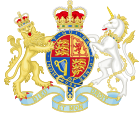- Joint Stock Companies Act 1856
-
Joint Stock Companies Act 1856 
Parliament of the United KingdomStatute book chapter 19 & 20 Vict. c.47 Introduced by Robert Lowe Territorial extent England and Wales, Scotland Dates Royal Assent 1856 Commencement 1856 Repeal date — Other legislation Related legislation Companies Act 2006 Repealing legislation — Status: The Joint Stock Companies Act 1856 (19 & 20 Vict. c.47) was a consolidating statute, recognised as the founding piece of modern United Kingdom company law legislation.
Contents
Overview
Unlike other Acts of Parliament that preceded it, the 1856 Act provided a simple administrative procedure by which any group of seven people could register a limited liability company for themselves.
Debate
The Joint Stock Companies Bill was introduced to Parliament by the then Vice President of the Board of Trade, Mr Robert Lowe. In doing so he proclaimed the right of every citizen to have freedom of contract and with it obtain limited liability for operating a business. Companies had until recently been prohibited, as a result of the Bubble Act and the stock market panics of the early 18th century. There was still a lot of suspicion of companies, so Lowe refuted the idea that a limited company is inherently subject to fraud, and proposed the suffix of "Ltd" to make businesses aware of limited liability.
“ A company formed on the principle of limited liability carries on the face of it something like prudence and caution. Its shareholders seem to say, "we have entered into a partnership, but it is impossible to tell what may happen, and since the company may fail, we will not risk all we possess in the undertaking...[1] My object at present is not to urge the adoption of limited liability. I am arguing in favour of human liberty - that people may be permitted to deal how and with whom they choose without the officious interference of the state; and my opinion will not be shaken even though very few limited companies be established. Every man has a right to choose for himself between the two principles, and it is ill advised legislation which steps in between him and the exercise of that right. It is right the experiment should be tried; and, in my judgment, the principle we should adopt is this, - not to throw the slightest obstacle in the way of limited companies being formed - because the effect of that would be to arrest ninety-nine good schemes in order that the bad hundredth might be prevented; but to allow them all to come into existence, and when difficulties arise, to arm the courts of justice with sufficient powers to check extravagance or roguery in the management of companies, and to save them from the wreck in which they may be involved.[2]
” The Third Reading of the Bill took place on 2 June 1856, and passed easily.[3]
See also
Notes
References
- Harris, R. (2000). Industrialising English Law: Entrepreneurship and Business Organisation, 1720–1844. Cambridge, UK: Cambridge University Press. ISBN 0-521-66275-3.
- Hunt, B.C. (1936). The Development of the Business Corporation in England, 1800–1867. Cambridge, MA: Harvard University Press.
- Mayson, S.W et al. (2005). Mayson, French & Ryan on Company Law. London: Oxford University Press. ISBN 0-19-928531-4.
External links
- Joint Stock Companies Act 1856, original text
- Joint Stock Companies Act 1856, explanations
United Kingdom legislation Pre-Parliamentary legislation Acts of Parliament by states preceding
the Kingdom of Great BritainActs of the Parliament of England to 1483 · 1485–1601 · 1603–1641 · Interregnum (1642–1660) · 1660–1699 · 1700–1706
Acts of the Parliament of Scotland
Acts of the Parliament of Ireland to 1700 · 1701–1800Acts of Parliament of the
Kingdom of Great Britain1707–1719 · 1720–1739 · 1740–1759 · 1760–1779 · 1780–1800
Acts of Parliament of the United Kingdom of
Great Britain and Ireland and the United
Kingdom of Great Britain and Northern IrelandChurch of England Measures Legislation of devolved institutions Acts of the Scottish Parliament
Acts and Measures of the Welsh Assembly
Acts of the Northern Ireland Assembly / of the Northern Ireland Parliament
Orders in Council for Northern IrelandSecondary legislation Categories:- 1856 in law
- United Kingdom Acts of Parliament 1856
- Business law
- United Kingdom company law
Wikimedia Foundation. 2010.

